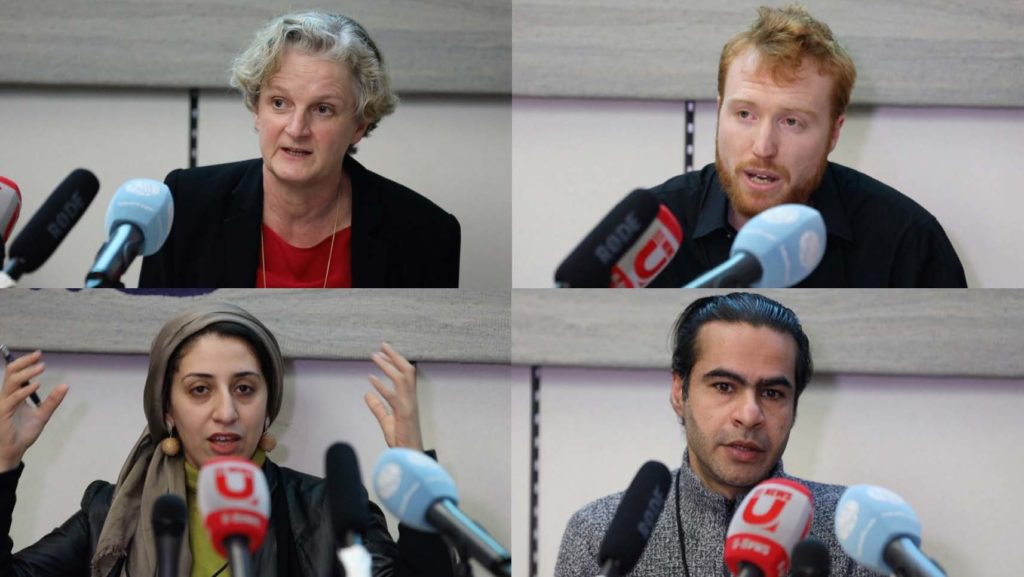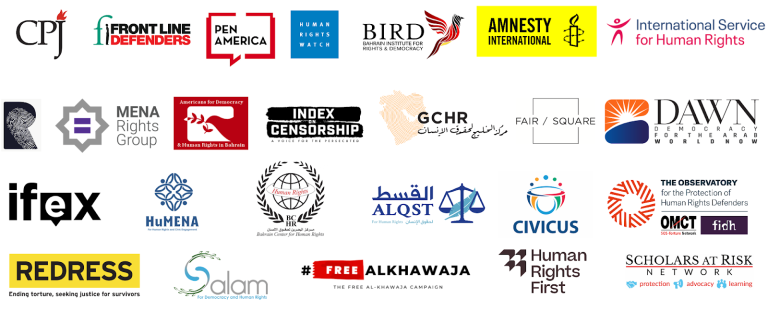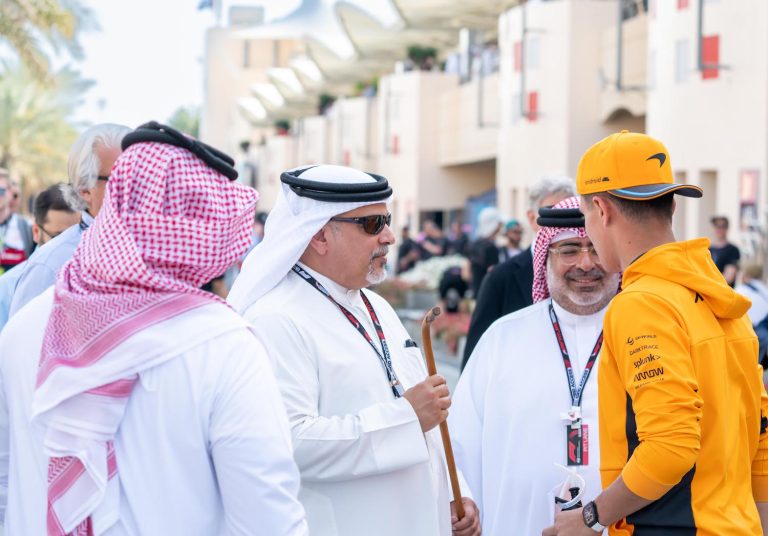17 February 2020 – Last week, the Bahrain Institute for Rights and Democracy (BIRD) organized an event at Parliament to commemorate the 9th anniversary of the Bahraini revolution. The panel included witnesses to the uprising Dr Ala’a Al Shehabi and Ali Abdulemam, as well as investigative journalist Phil Miller and BIRD researcher Joseph Evans. The event was sponsored by Lloyd Russel-Moyle, MP.
Moderating the event was Sue Willman, Chair of The Law Society Human Rights Committee and Assistant Director of the King’s College Legal Clinic. Sue’s opening remarks lamented the violence with which the demands of the Bahraini dissidents were faced, as well as the “deafening” silence of Bahrain’s closest allies: the United States and the United Kingdom.
Sue criticized the continuing cooperation between the UK and Bahrain and pointed out that “the UK’s policy of working behind the scenes to make things better isn’t working.” She also lauded the efforts and determination of Bahraini activists for “punching miles above their weight” in terms of effective advocacy networks and campaign strategies.
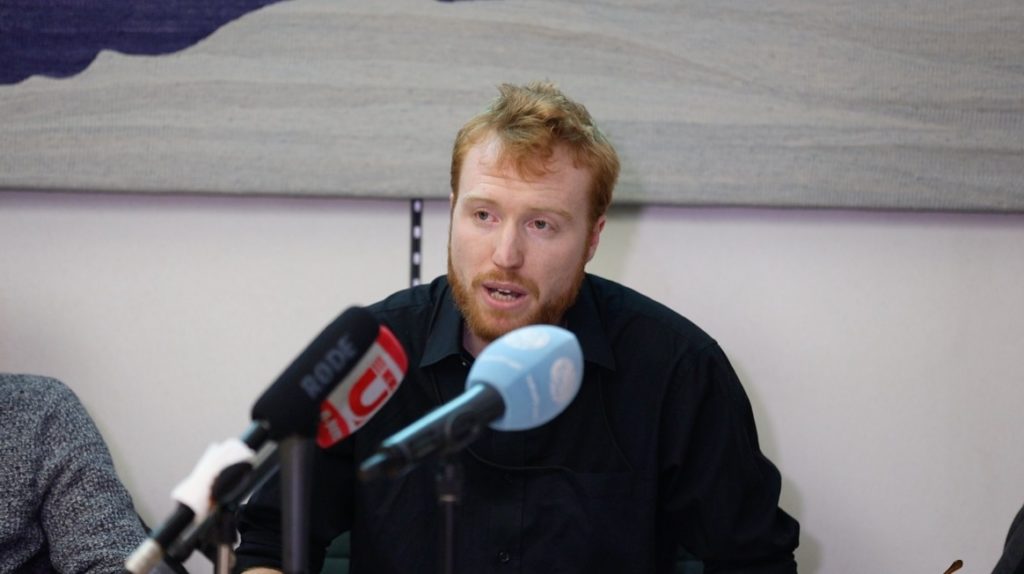
Phil Miller, investigative journalist at Declassified UK and an expert on British-related security services abroad, discussed Bahrain’s historic position in Britain’s geopolitical strategy, particularly its importance in maintaining the flow of oil through the Straits of Hormuz and as a bulwark against Iranian influence in the Persian Gulf. He also compared Britain’s failure to support democratic reform in Oman and Bahrain, noting that these dictatorships allow Britain to have naval bases close to key oil reserves.
Phil went on to criticise the state of the free press in the UK and lamented the failure of British journalists to speak truth to power and hold the government to account. He noted particularly that his research exposing the implication of UK-trained Brigadier Fawaz Al Hassan in the torture of activist Najah Yusuf was published in American lifestyle magazine Vice after being ignored by UK publications.
Calling for a new media landscape to challenge the dominance of the mainstream press, Phil lauded the power of new online and alternative publications to effect real change and reaffirmed the importance of local press. He drew particular attention to the role of the Yorkshire Post and the Huddersfield Examiner in putting pressure onto the University of Huddersfield to drop ties to a renowned “torture hub” in Bahrain.
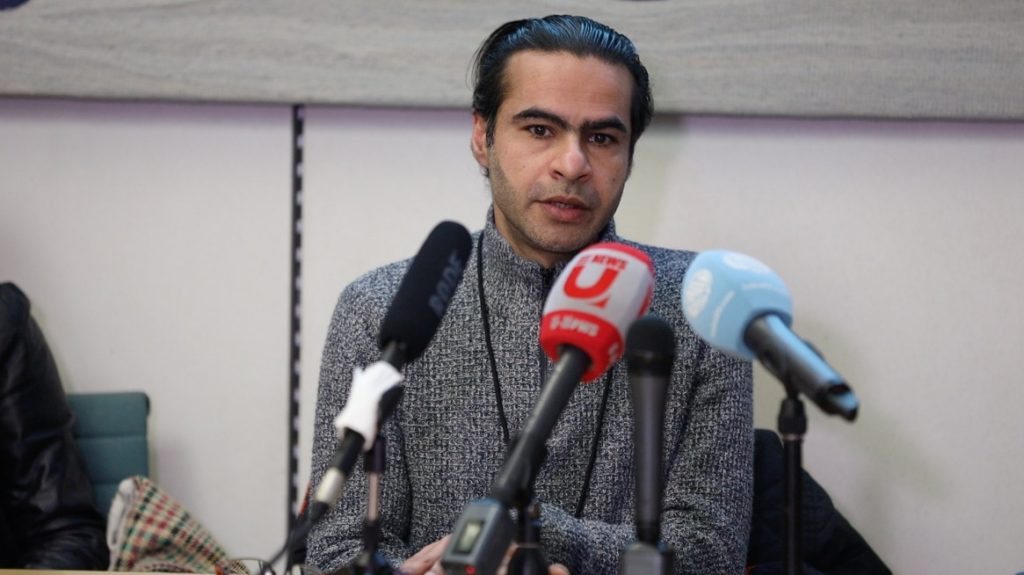
Ali Abdulemam, prominent Bahraini blogger and founder of the pro-democracy site Bahrain Online, discussed his memories of the 2011 uprising and his long experience of persecution by the Bahraini state. Ali described being able to “smell the dignity” in the air when he was released from prison at the beginning of the revolution, having been jailed for the second time in 2010 for his online activity. He also described his emotions at seeing thousands of Bahrainis “demanding my dream, the dream of my father and my grandfather,” referencing Bahrain’s long tradition of resistance.
Ali then reflected on the state of the revolution nine years on, lamenting the continued imprisonment of opposition leaders and human rights defenders including Abdulhadi Alkhawaja and Nabeel Rajab. He astutely noted that “if you want to understand the state of human rights in any country, look to the human rights defenders.”
Ali also condemned widespread torture in Bahraini prisons, claiming that the authorities “enjoy torture and enjoy talking about how they torture people. Officers told me this themselves.” He also discussed the long term impact of human rights abuses in Bahrain and the lack of awareness about mental illnesses like post traumatic stress disorder, which his former cellmate suffers from to this day.
Nonetheless, Ali remains optimistic, citing recent successes like the blocking of a shipment of tear gas that was headed for Bahrain.
Joseph Evans, Research and Advocacy Associate at BIRD, began by highlighting some of the victories achieved by campaigners over the course of 2019, including the release of refugee footballer Hakeem Al Araibi last February and the release of activist Najah Yusuf last August and the suspension of UK arms sales to Bahrain in June 2019. He went on to assert that the human rights situation has deteriorated considerably since the revolution, pointing particularly to the severe constriction of freedom of expression and assembly and rise in executions since 2017.
He also criticised Bahrain’s penal system, which sees Bahrain imprison its populace at a higher rate than any other Arab nation. Commenting on the high incidence of torture allegations emanating from Bahraini detention centres, Joseph commented that torture is “a systematic and intrinsic part of the legal process, supporting a justice system that continues to depend on confessions rather than physical evidence.”
Joseph also condemned widespread medical neglect of political prisoners in Bahrain, noting particularly the tragic death of Sayed Kadhem Abbas at the beginning of February. Key figures of the 2011 uprising including opposition leaders Hassan Mushaima and Dr Abduljalil Al-Singace are also consistently denied specialist care at Jau Prison.
Finally, Joseph condemned the failure of UK-government support to promote tangible reforms in Bahrain, particularly criticising the failure to regularly evaluate the efficacy of taxpayer-funded programmes and institutions. Among these institutions are discredited human rights oversight bodies that international watchdogs have routinely dismissed, failed to investigate or covered up abuses, including those reported by Hajer Mansoor, mother-in-law of BIRD Director of Advocacy Sayed Ahmed Alwadaei who has been imprisoned in reprisal for his activism since 2017.
Referring to the recent scandal linking the University of Huddersfield to an organisation accused of systematic torture in Bahrain, Joseph concluded by asserting that the UK government must ensure that robust human rights policies are given precedence over economic concerns as the UK negotiates exiting the European Union, stating that the UK should uphold “the vaules of tolerance, liberty and the rule of law that this country has long claimed to represent.”
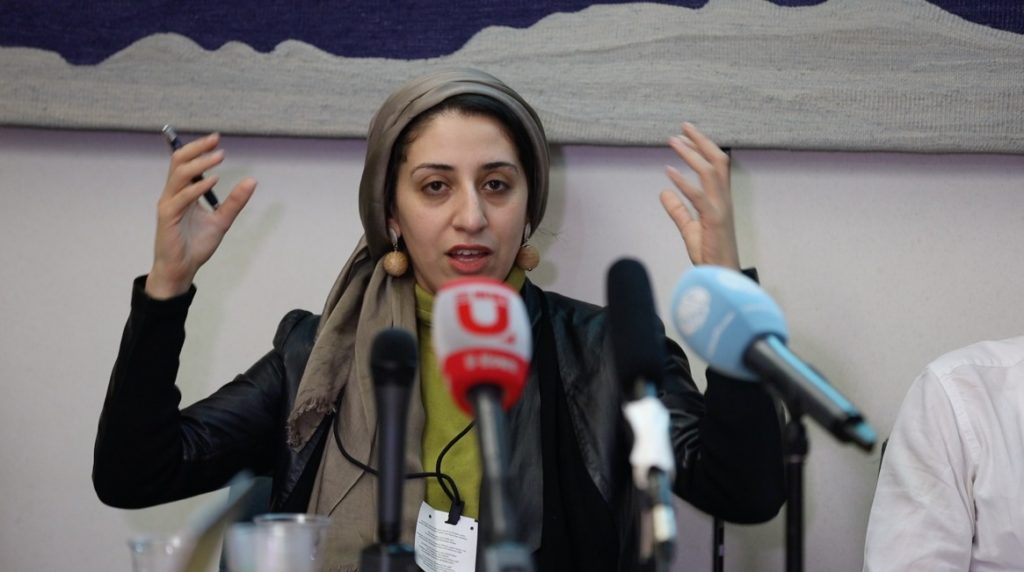
The final speaker was Ala’a Al Shehabi, Deputy Director for the Institute for Global Prosperity at UCL, who began by describing her “Kafkaesque” experience of negotiating Bahrain’s military tribunals in 2011, which saw hundreds of civilians handed long sentences for slight offences. Among them was Ala’a’s husband, who was sentenced to three years in a “show trial” on fabricated charges.
Ala’a then took a long view on the history of popular resistance in Bahrain, noting that protest movements have erupted “every ten years” since 1926, when Bahraini pearl divers protested against pay cuts outside British colonial institutions.
She derided the British government’s hollow support for reform in Bahrain, asserting that on the contrary Britain has been instrumental in actively “de-democratising” Bahrain since the signing of the General Maritime Treaty in 1820. Ala’a also referred to a statement from Boris Johnson during his time as Foreign Secretary describing British disengagement East of Suez as a “mistake,” deriding a prevailing nostalgia for empire within Conservative political discourse in the Brexit era.
Ala’a also discussed her and Ali’s work monitoring Bahrain’s use of surveillance software like Pegasus Spyware, linking the abuse of new technologies in Bahrain to struggles in China, Palestine and beyond. Describing Bahrain and other authoritarian states as a “petri dish” for the weapons of the future, she held up the achievements of Bahraini activists in exposing the use of such technology and the many links to Western corporations.
Ala’a concluded with a rallying cry for Bahrainis to continue the fight for freedom, stating “it doesn’t matter if we’re victorious or not; we stood by the side that was correct.”

